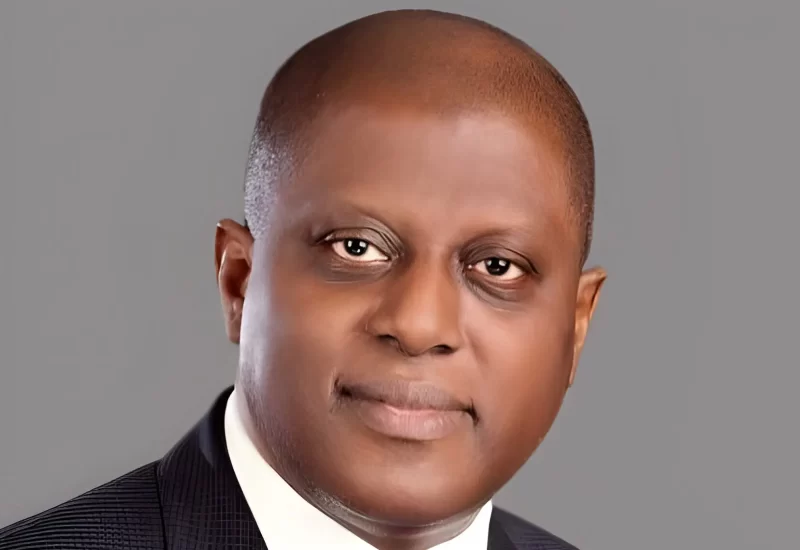Business
Expediency Of Learning Lessons From Zimbabwe On Floating Of Local Currency, by Isaac Asabor

The decision taken by Nigeria, under President Bola Ahmed Tinubu’s administration to be floating the naira, allowing its value to be determined by the open market rather than pegging it to another currency or managing it through a fixed exchange rate, is a crucial economic policy choice. For Nigeria, the idea of floating the naira has been discussed and debated for years, with proponents arguing that it could bring about greater economic stability and transparency. However, as Nigeria has taken this significant decision, and is now in it, it is essential to draw lessons from the experience of Zimbabwe, a country that has undergone a turbulent journey with its currency.
Without recourse to denigration, Zimbabwe’s economic history is a stark reminder of how currency mismanagement can lead to catastrophic consequences. Once considered one of Africa’s most promising economies, Zimbabwe faced hyperinflation in the late 2000s, leading to the abandonment of the Zimbabwean dollar in 2009. The country then adopted a multi-currency system, primarily using the US dollar, in an attempt to stabilize its economy.
However, in 2019, Zimbabwe reintroduced the Zimbabwean dollar, abandoning the multi-currency regime. The reintroduction was accompanied by the floating of the currency, but it quickly became apparent that the move was premature. Without the necessary economic fundamentals in place, the currency’s value plummeted, leading to a rapid loss of confidence among both local and international investors. The result was a return to hyperinflation and severe economic instability.
As gathered from literatures and books on Economics, as I am not an Economist, but a Journalist on the Business Desk of a national newspaper, permit me to share the “little knowledge” I gained by virtue of my profession, having had the opportunity of listening and interacting with Economic analysts and observers alike, by opining that Zimbabwe’s experience highlights the importance of having strong economic fundamentals before floating a currency. A country’s currency value is not just determined by market forces but also by the underlying strength of its economy. For Nigeria, this means that before considering a float, the government must ensure that the economy is robust, with controlled inflation, a diversified revenue base, and a stable political environment. This is as a weak economy will likely lead to a rapid depreciation of the currency, exacerbating inflation and worsening economic conditions.
Again, I for the umpteenth time read and heard that building confidence in the financial system is indispensable. The reason for the foregoing cannot be farfetched as confidence is key when floating a currency. It is little wonder that Zimbabwe’s reintroduction of the Zimbabwean dollar was met with skepticism, both domestically and internationally, due to the lack of trust in the government’s ability to manage the currency effectively. For Nigeria, building and maintaining confidence in the naira will be essential. This can be achieved through transparent and consistent monetary policies, clear communication from the Central Bank, and a commitment to protecting the currency from political interference.
In a similar vein, not a few Economists and Bankers are unanimous in their views that given the president economic predicament that Nigeria is undergoing that foreign exchange reserves matters. The reason for their views cannot be farfetched as one of the challenges Zimbabwe faced was the depletion of its foreign exchange reserves, which made it difficult to support its currency. For Nigeria, maintaining adequate foreign exchange reserves will be critical as she is at the moment floating her currency. These reserves provide a buffer against speculative attacks on the currency and can be used to stabilize the naira if necessary. Therefore, the Central Bank of Nigeria (CBN) should focus on rebuilding and maintaining healthy reserves before considering a float.
As gathered, there is also the need to manage expectations. The reason for the foregoing cannot be farfetched as the initial period after a currency float can be volatile, with sharp fluctuations in the exchange rate. In Zimbabwe, this volatility led to panic and a loss of confidence. Nigeria must manage expectations by preparing the public and investors for potential short-term instability. This includes setting realistic goals for the currency float and being prepared to intervene if necessary to prevent excessive volatility.
In fact, Zimbabwe’s currency crisis was exacerbated by poor policy decisions, including the excessive printing of money and the lack of fiscal discipline. Nigeria must learn from these mistakes by ensuring that its fiscal policies are aligned with its monetary policies. The government should avoid the temptation to finance budget deficits through excessive borrowing or money printing, as this could undermine the success of a currency float.
Again, it is germane to opine that Nigeria’s economic landscape is vastly different from Zimbabwe’s, but the lessons are still relevant. Nigeria’s economy is larger, more diversified, and more integrated into the global financial system. However, it also faces significant challenges, including inflationary pressures, high unemployment, and a reliance on oil exports for foreign exchange earnings. These challenges must be addressed before a successful float of the naira can be attained.
Furthermore, Nigeria’s political environment is complex, with various interest groups and regional considerations that could influence the outcome of a currency float. Therefore, as the government floats the naira, it must always be cognizance of the fact that there are risks and benefits therein and with a commitment to managing the process effectively.
As Nigeria insists on floating the naira, it is crucial to look to Zimbabwe as a cautionary tale. While floating a currency can bring about greater economic flexibility and transparency, it is not a decision to be taken lightly. Nigeria must ensure that it has the necessary economic fundamentals in place, build confidence in the financial system, and be prepared to manage the volatility that may arise. By learning from Zimbabwe’s experience, Nigeria can make a more informed decision and potentially avoid the mistakes that led to economic turmoil in its southern neighbor.
























